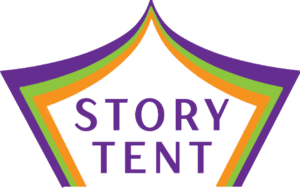Last month I was invited to speak at the General Assembly of the Inter-Parliamentary Union; it was the first time that I had been able to speak at one of their events. For those (like me!) who don’t know, the Inter-Parliamentary Union (IPU) is a global organization of national parliaments that works to promote democratic governance, facilitate parliamentary dialogue, and strengthen the capacity of parliaments worldwide to represent their citizens effectively. It is always interesting to get a chance to see how these international organisations work; they are so very different to my regular 9-5! The formality of the delegations coming from different countries, the protocol, the vernacular.
It is also interesting because one is often asked to discuss a familiar topic from a slightly unfamiliar angle. And so it was on this occasion. I was asked to be on a panel discussion about how education could be a tool for countering intolerance and fostering religious literacy for more inclusive and peaceful societies.
Talking about the work of Culham St Gabriel’s and how a broad-based, critical and reflective Religion and Worldviews curriculum contributes to a well-informed, respectful and open society was straightforward enough. More unfamiliar though was to articulate the contribution which Religious Literacy makes to more inclusive and peaceful societies.
I explained how for us, a high-quality religion and worldviews approach to religious education centres people. It focuses on the diversity of lived religion, taking seriously the diversity, continuity, change and context of religions and beliefs. It sees pupils as interpreters of religion, and encourages them to use different lenses to explore faith traditions – theological, sociological, historical and philosophical. This approach emphasises the value of dialogue and intellectual humility.
In talking about this approach, I reflected that teachers tell us daily that a religion and worldviews approach to religious education is the space in the curriculum where they are able to facilitate conversations that address societal fractures, remove barriers and encourage positive interaction between groups. In other words, in ways that few other subjects can a religion and worldviews approach to religious education fosters cohesion and inclusion.
I talked about how schools are uniquely placed to do this work, that by virtue of the daily encounters staff have with a cross-section of people from their local communities, and because of their central purpose to educate and inform, schools can be powerful agents of social cohesion. (Speaking personally, I also suggested that any attempt by governments to foster cohesion and inclusion nationally which do not see schools as pivotal partners are incomplete strategies, but that’s another issue.)
Arguably, this is what work which fosters Religious Literacy within institutions and the wider public also seeks to achieve. Specifically, Religious Literacy work encourages participants to think about the diversity of lived religion. This is because the intent is to enable those participants (and by extension the organisations they might work for) to better understand how religion and belief shapes the choices we all make in our daily lives and so enhance the posture of organisations in relation to religion and belief communities.
But for my audience at the IPU it was not enough just to lay out the connection as we saw it. Making the case for how parliamentarians and legislators could lean into the opportunities presented by Religious Literacy work (or indeed a religion and worldviews approach to religious education) felt really important too. Afterall, that is the opportunity which the IPU gives to its members: for legislators to share best practice from their parliaments about how they had engaged on these issues. So, to do that I talked about some of the work with which Culham St Gabriel’s is involved and supports.
I talked about how through the RE Policy Unit, we support legislators to ask questions in Parliament that highlight the role a religion and worldviews approach to religious education plays in promoting education, community cohesion and Freedom of Religion or Belief (FoRB). Legislators value this work because it aligns with what their constituents care about.
I then shared how I had recently been in the House of Lords with students who had been working on a FoRB Ambassador programme we had funded. The culmination was a roundtable hosted by the students themselves, where they talked with parliamentarians, including the Shadow Chancellor of the Exchequer, about the importance of FoRB to them. Watching young people confidently articulating why religious literacy matters was a powerful reminder of why this work is so important, and the impact of high-quality engagement between legislators and young people.
When strategies for promoting inclusion and tolerance are embedded in schools, and when these connect with political will and support, we create the conditions for countering intolerance and building more peaceful societies. Religious literacy, whether we are talking about formal Religion and Worldviews education in schools or broader initiatives across society, has the potential to foster dialogue within and between communities, build tolerance and appreciation of difference, and develop advocacy in response to injustice. That feels like work worth doing.
Thank you for taking the time to read this blog, I would love to hear what you think!

